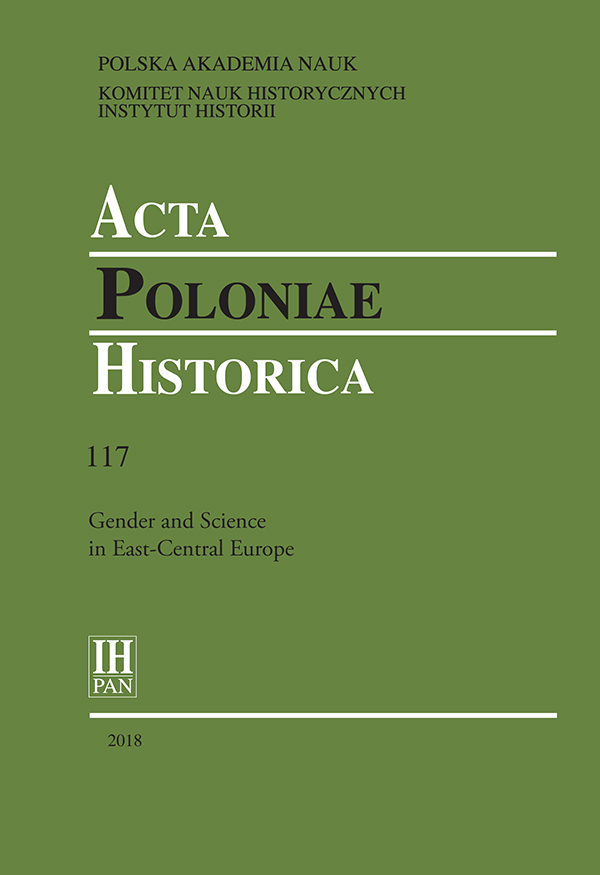Love of Wide Open Waters. The Polish Maritime Programme according to the Baltic and Western Institutes in the Aftermath of the Second World War (1945–ca. 1950)
DOI:
https://doi.org/10.12775/APH.2018.117.07Keywords
Baltic Sea, Poland, post-Second World War, maritime policy, maritime education, Baltic Institute, Western InstituteAbstract
This article analyses the Polish maritime programme after the Second World War, as expressed in scholarship of two main Polish research institutions: the Baltic Institute and the Western Institute. Given the considerable border changes at the end of the war, which incorporated a long coastline and three major ports on the Baltic Sea (Danzig/Gdańsk, Stettin/Szczecin and Gdynia) into post-war Poland, the maritime programmes gained a new basis for operations in comparison to the interwar period, and thus had to be adapted accordingly. They contained both continuities and modifications: in ideological terms they were based on the prewar premises of Poland’s origins as a Baltic Sea country, and had a strong anti-German dimension. On the other hand, they were more pragmatic and concentrated on the organization of the maritime economy and education. Similarly as in the interwar period, they were also seen as a modernizing project: the maritime economy and education were supposed to connect the Polish nation with the whole world, and thus assure its equal status as part of the Western world.
References
Boduszyńska-Borowikowa Maria, Życie jak płomień. O życiu i pracach Józefa Borowika (Gdańsk, 1972).
Borowik Józef (ed.), Światopogląd morski (Toruń, 1934).
Ciesielski Czesław, ‘Z dziejów Instytutu Bałtyckiego’, in Czesław Ciesielski (ed.), Osiemdziesiąt lat Instytutu Bałtyckiego. Materiały konferencji naukowej z 29 listopada 2005 r. (Gdańsk, 2006), 7–17.
Górski Karol, Polska w zlewisku Bałtyku (Gdańsk, Bydgoszcz and Szczecin, 1947).
Grodek Andrzej et al. (eds.), Monografia Odry (Poznań, 1948).
Grzechnik Marta, ‘“Recovering” Territories: The use of history in the integration of the new Polish western borderland after World War II’, Europe-Asia Studies, lxix, 4 (2017), 668–92.
Kenney Padraic, Rebuilding Poland: Workers and Communists, 1945–1950 (Ithaca and London, 2012).
Konstantynów Dariusz and Małgorzata Omilanowska (eds.), Polska nad Bałtykiem: Konstruowanie identyfikacji kulturowej państwa nad morzem 1918–1939 (Gdańsk, 2012).
Labuda Gerard, Wielkie Pomorze w dziejach Polski (Poznań, 1947).
Perkowski Piotr, Gdańsk – miasto od nowa. Kształtowanie społeczeństwa i warunki bytowe w latach 1945–1970 (Gdańsk, 2013).
Potocki Stanisław, ‘The Baltic Institute and Scandinavian Studies in Poland’, Komunikaty Instytutu Bałtyckiego, xi, 20 (1974), 3–14.
Szczerski Andrzej, Modernizacje: sztuka i architektura w nowych państwach Europy Środkowo-Wschodniej 1918–1939 (Łódź, 2010).
Wojciechowski Zygmunt, Polska – Niemcy. Dziesięć wieków zmagania (Poznań, 1945).
Downloads
Published
How to Cite
Issue
Section
License
Title, logo and layout of journal are reserved trademarks of APH.Stats
Number of views and downloads: 633
Number of citations: 2



